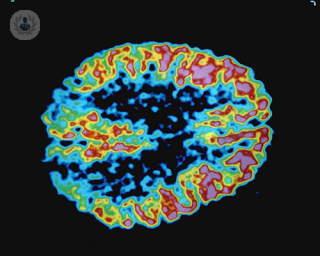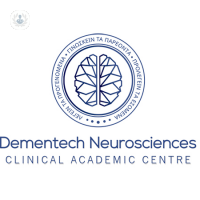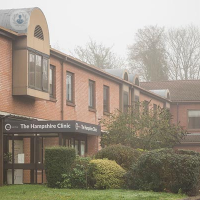What are seizures?
Seizures, or convulsions, are a medical condition where body muscles contract and relax involuntarily, resulting in an uncontrolled and unforeseeable shaking of the body. During a fit, the voluntary muscles contract and relax rapidly and repeatedly for a variable period of time.
Seizures can arise if you have a high temperature or if you have any viral diseases. If you have epilepsy, you will also experience seizures. Furthermore, conditions such as hypoglycaemia or hypocalcaemia can lead to seizures as well.

What are the symptoms?
The symptoms of seizures largely depend on the cause. The most common ones are:
- involuntary jerking;
- altered mood before a fit;
- foaming at the mouth;
- grinding your teeth;
- uncontrollable muscle spasms;
- breathing problems;
- joint pain;
- uncontrollable eye movements;
- vomiting and diarrhoea;
- fainting;
- temporary cessation of breathing;
- suddenly falling down;
- loss of consciousness;
- making sounds or noises.
Moreover, before having a fit, you may also experience the following symptoms:
- anxiety;
- insomnia;
- dizziness;
- seeing bright lights;
- a sense of numbness in one or more parts of your body;
- nausea
How can seizures be diagnosed?
Convulsions or seizures are usually diagnosed with a physical examination and by going through your medical history with your doctor. For a more accurate diagnosis, you may have to do one or more of the following tests:
- blood test;
- urine test;
- electroencephalogram (EEG);
- head MRI scan;
- spinal tap or lumbar puncture: only if there is a suspect of either meningitis or encephalitis;
- neurological examination: reflex analysis, muscular strength and tone, sensory abilities, posture and gait examination, coordination analysis.
What causes seizures?
The primary cause for seizures is an abnormally excessive or synchronous neuronal activity in the brain. However, there are several conditions that can lead to a fit, which is why it is hard to determine the exact trigger.
Some of the main underlying causes include alcoholism, drug abuse, poisoning, epilepsy, high fever, kidney and liver failure, metabolic disorders, heart diseases, meningitis, snake bites, electric shock, head injuries, toxic substances in the blood, head trauma, brain tumour, eclampsia, viral infections, congenital cerebral defects, alcohol withdrawal, and high blood pressure.
How can seizures be treated?
To help control the seizures, a doctor may prescribe anti-epileptic drugs (AEDs) or sedatives.
Which doctor should I talk to?
You should see a neurology specialist, neuropsychiatrist, or psychiatrist.
06-22-2016 09-27-2024Seizures
What are seizures?
Seizures, or convulsions, are a medical condition where body muscles contract and relax involuntarily, resulting in an uncontrolled and unforeseeable shaking of the body. During a fit, the voluntary muscles contract and relax rapidly and repeatedly for a variable period of time.
Seizures can arise if you have a high temperature or if you have any viral diseases. If you have epilepsy, you will also experience seizures. Furthermore, conditions such as hypoglycaemia or hypocalcaemia can lead to seizures as well.

What are the symptoms?
The symptoms of seizures largely depend on the cause. The most common ones are:
- involuntary jerking;
- altered mood before a fit;
- foaming at the mouth;
- grinding your teeth;
- uncontrollable muscle spasms;
- breathing problems;
- joint pain;
- uncontrollable eye movements;
- vomiting and diarrhoea;
- fainting;
- temporary cessation of breathing;
- suddenly falling down;
- loss of consciousness;
- making sounds or noises.
Moreover, before having a fit, you may also experience the following symptoms:
- anxiety;
- insomnia;
- dizziness;
- seeing bright lights;
- a sense of numbness in one or more parts of your body;
- nausea
How can seizures be diagnosed?
Convulsions or seizures are usually diagnosed with a physical examination and by going through your medical history with your doctor. For a more accurate diagnosis, you may have to do one or more of the following tests:
- blood test;
- urine test;
- electroencephalogram (EEG);
- head MRI scan;
- spinal tap or lumbar puncture: only if there is a suspect of either meningitis or encephalitis;
- neurological examination: reflex analysis, muscular strength and tone, sensory abilities, posture and gait examination, coordination analysis.
What causes seizures?
The primary cause for seizures is an abnormally excessive or synchronous neuronal activity in the brain. However, there are several conditions that can lead to a fit, which is why it is hard to determine the exact trigger.
Some of the main underlying causes include alcoholism, drug abuse, poisoning, epilepsy, high fever, kidney and liver failure, metabolic disorders, heart diseases, meningitis, snake bites, electric shock, head injuries, toxic substances in the blood, head trauma, brain tumour, eclampsia, viral infections, congenital cerebral defects, alcohol withdrawal, and high blood pressure.
How can seizures be treated?
To help control the seizures, a doctor may prescribe anti-epileptic drugs (AEDs) or sedatives.
Which doctor should I talk to?
You should see a neurology specialist, neuropsychiatrist, or psychiatrist.


Epilepsy – the 6 types of seizures
By Mr Richard Selway
2024-11-21
Epilepsy is a neurological disorder affecting 1 in 100 people in the UK, and it is characterised by seizures. Typically, seizures may involve uncontrolled, jerky movements, but in fact, did you know that there are 6 different types of seizure? Mr Richard Selway of the London Neurosurgery Partnership describes the characteristics of each type of seizure. See more


What is brain tumour-related epilepsy?
By Dr Katia Cikurel
2024-11-21
Dr Katia Cikurel shares her medical expertise with you to provide a clear understanding of brain tumour-related epilepsy, how common it is, types of tumours, triggers and the best way to manage the condition. See more


Women and epilepsy (part 2): pregnancy, breastfeeding and safety
By Professor Matthew Walker
2024-11-20
Women with epilepsy have extra considerations during pregnancy, breastfeeding and life as a new mum, but this doesn’t have to lessen their quality of motherhood. Professor Matthew Walker explains if seizures and epilepsy medication can harm a baby in the womb and provides breastfeeding and safety considerations for new mums with epilepsy. (Part 2 of 2 – see part 1 for epilepsy and hormones, periods and contraception) See more


Women and epilepsy (part 1): hormones, periods and contraception
By Professor Matthew Walker
2024-11-20
The female body can have a profound effect on epilepsy. Unbeknownst to many, hormones, menstrual cycles and contraception measures play a part in the management of the condition. Matthew Walker, a leading specialist and researcher in the field of epilepsy, explains the connection between women and epilepsy. See more
Experts in Seizures
-
Dr Adrian Miller
NeurologyExpert in:
- Dizziness
- Headache
- Loss of consciousness
- Memory disorder
- Seizures
- Tremor
-
Dr Mona Ghadiri-Sani
NeurologyExpert in:
- Migraine
- Chronic headache
- Tension headache
- Seizures
- Facial pain
- Tremor
-
Dr Adnan Al-Araji
NeurologyExpert in:
- Multiple sclerosis
- Headache
- Tremor
- Dizziness
- Whiplash
- Seizures
-
Professor Matthias Koepp
NeurologyExpert in:
- Epilepsy
- Epilepsy surgery
- Seizures
- Amnesia
- Learning disabilities
- Cognitive impairment
-
- See all

Dementech Neurosciences
Dementech Neurosciences
Lister House, 11-12 Wimpole St, London, W1G 9ST
No existe teléfono en el centro.
By using the telephone number provided by TOP DOCTORS, you automatically agree to let us use your phone number for statistical and commercial purposes. For further information, read our Privacy Policy
Top Doctors

Hampshire Clinic - part of Circle Health Group
Hampshire Clinic - part of Circle Health Group
Basing Rd, Old Basing, Basingstoke RG24 7AL
No existe teléfono en el centro.
By using the telephone number provided by TOP DOCTORS, you automatically agree to let us use your phone number for statistical and commercial purposes. For further information, read our Privacy Policy
Top Doctors

New Victoria Hospital
New Victoria Hospital
184 Coombe Lane West, Kingston upon Thames, KT2 7EG
No existe teléfono en el centro.
By using the telephone number provided by TOP DOCTORS, you automatically agree to let us use your phone number for statistical and commercial purposes. For further information, read our Privacy Policy
Top Doctors
-
Dementech Neurosciences
Lister House, 11-12 Wimpole St, London, W1G 9ST, W1G Marylebone LondonExpert in:
- Neurology
- Psychology
- Psychiatry
-
Hampshire Clinic - part of Circle Health Group
Basing Rd, Old Basing, Basingstoke RG24 7AL, BasingstokeExpert in:
- Vascular Surgery
- Cardiology
- Minimal access surgery (keyhole surgery)
- Endocrine Surgery
- Maxillofacial Surgery
- Neurological spinal surgery
-
New Victoria Hospital
184 Coombe Lane West, Kingston upon Thames, KT2 7EG, South LondonExpert in:
- Cardiology
- General Surgery
- Orthopaedic surgery
- Breast augmentation
- Pain management
- Spine
- See all
- Most viewed diseases, medical tests, and treatments
- Migraine
- Maternal mental health
- Tremor
- Parkinson's disease
- Expert witness
- Anxiety
- Botulinum toxin (Botox™)
- Abnormal gait
- Medical cannabis prescription
- Carpal tunnel syndrome







